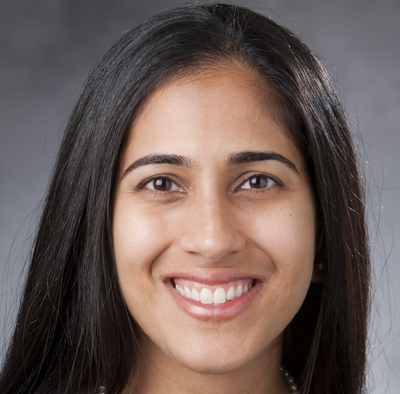Manisha Palta, MD

Why did you choose to support the ROI?
Our medical oncology and surgical colleagues have done an excellent job promoting their respective disciplines and we owe it to our specialty to do the same. ROI supports critical areas of research to minimize treatment-related toxicity, improve treatment delivery, and compare radiotherapy to other treatment alternatives. These types of projects directly impact how we care for our patients and are less likely to be funded through other avenues.
In particular, why did you choose to support the ROI in honor of your father Jatinder Palta, PhD, FASTRO?
My decision to pursue a career in radiation oncology was, in large part, due to my father. It seemed only natural that this donation should be in his honor.
Why did you decide to become a radiation oncologist?
In medical school I loved every clinical rotation I did, however, I always found myself drawn to oncology. Radiation Oncology offers the perfect balance of clinical care, technology, education and research.
How do you envision the future of the field of radiation oncology? In what ways would you like to see it grow/evolve?
I think the way we are moving toward the goal of personalized, tumor directed cancer care. Our medical oncology colleagues have evolved their practice away from treating cancers uniformly to a tumor directed approach by using systemic therapy against actionable mutations and upregulated genes. My hope is that radiation oncology will evolve in a similar way where radiotherapy will be patient and tumor specific.
What advice would you offer to the next generation of radiation oncologists?
Be open to change…. Residency teaches you oncologic principles, evidence-based practice and to think critically, however, your practice should continually evolve.
Manisha Palta, MD is Associate Professor of Radiation Oncology at Duke University School of Medicine. She is a Mentor in the ROI Founders’ Circle and made her pledge in honor of her father Jatinder Palta, PhD, FASTRO.














